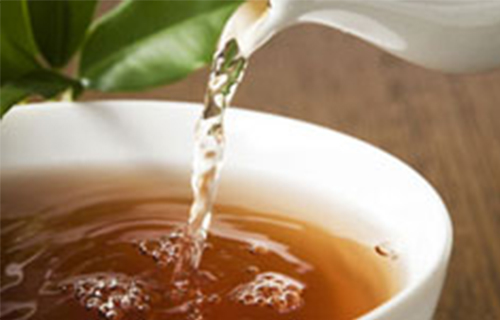Dietary consumption of tea and the risk of prostate cancer in the Prostate, Lung, Colorectal and Ovarian Cancer Screening Trial
Authors: Robert Thomas1,2,3, Alex McConnachie4, Bethany Stanley4, Madeleine Williams2
 The Primrose Lifestyle Research Unit, Bedford Hospital, Bedford MK42 9DJ,
The Primrose Lifestyle Research Unit, Bedford Hospital, Bedford MK42 9DJ,
Dept. of Oncology, Addenbrookes’ Hospital NHS Trust, Hills Rd, Cambridge CB2 2QQ.
School of Sport Science and Physical Activity, Institute for Sport and Physical Activity Research University of Bedfordshire, Polhill Avenue, Bedford, MK41 9EA.
Institute of Health and Wellbeing, College of Medical, Veterinary and Life Sciences, Robertson Centre for Biostatistics, University Avenue, University of Glasgow, Glasgow G12 8QQ
Presented at ASCO 2020 https://meetinglibrary.asco.org/record/189372/abstract
Background
The popular beverage tea, brewed from infused leaves of camellia sinesis, contains non-phytoestrogenic polyphenols such as flavonoids, anthocyanidins, flavanols (epigallocatechin gallate); phenolic acids (ellagic acid) and stimulants (caffeine, theophylline). Laboratory studies report tea promotes antioxidant enzyme formation, slows cancer cell proliferation and unblocks apoptosis. Clinically, the Pomi-T randomised control study reported tea extract (along with three other foods) reduced PSA progression in men with prostate cancer1. Evidence of prostate cancer prevention, however, from prospective cohort data is conflicting with one recent study even implying an increased risk2.
Method
We analysed 25,097 men within the intervention arm of the 155,000 participant PLCO screening trial. Histological confirmed cases of prostate cancer were reported in 3,088 men (12.3%) during the 11.5 year follow up. Tea consumption was assessed with a food frequency questionnaire (FFQ). Baseline characteristics were compared between groups using Chi-square and Kruskal-Wallis tests. Cox regression models were used to assess the association between tea intake and prostate cancer incidence.
Results
Overall tea consumption was associated with a significantly lower risk of prostate cancer (p=0.009). More precisely, the participants in the highest third of consumption group had a significantly lower risk compared to those in the lowest third (HR 1.16 (CI 1.05-1.29, p=0.004). This pattern persisted with adjustments for age, sex, race and education level (p=0.034), family history of cancer (p=0.037). Those who never drank tea, had no increased risk of prostate cancer compared to other groups (p=0.501).
Conclusion
Among tea drinkers, this data revealed a positive association between drinking tea and a reduced risk of prostate cancer. The study revealed that for every 500g of tea drunk (about two cups) there was a 3% lower risk of prostate cancer. This data supports the inclusion of tea in the blend for pomi-t and consideration of future prospective intervention studies investigating the role of tea as part of a prostate cancer prevention programme.
References
- Thomas et al. The NCRN Pomi-T RCT. Prostate cancer & prostatic diseases (2014), 2,180.
- Reger et al. Dietary isoflavones and prostate cancer risk. Int J. Cancer (2017), 142; 4, 719.
